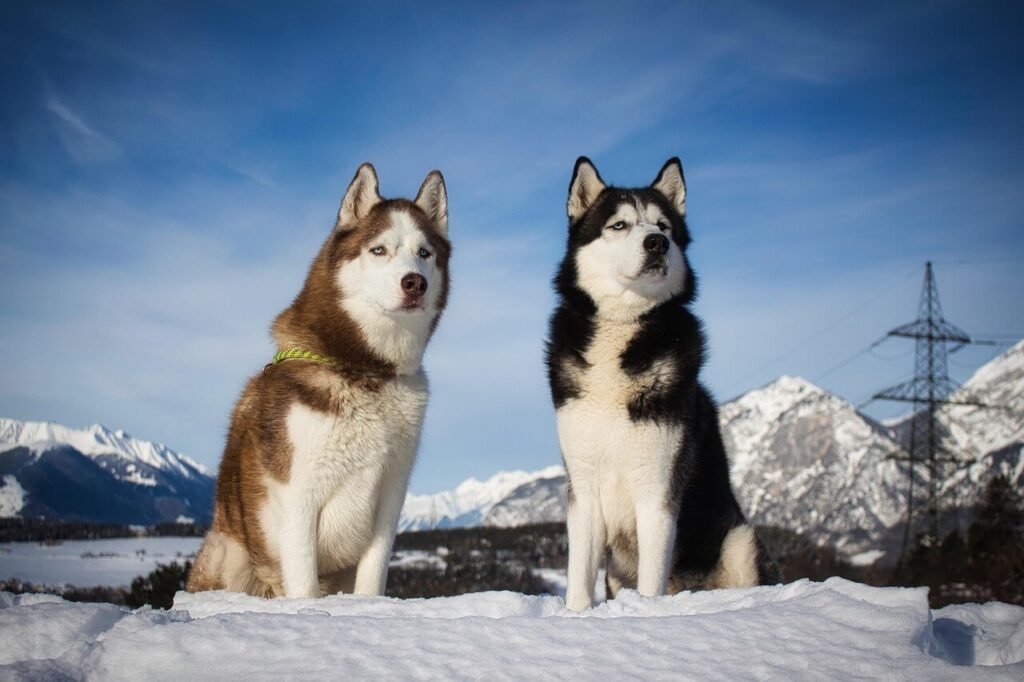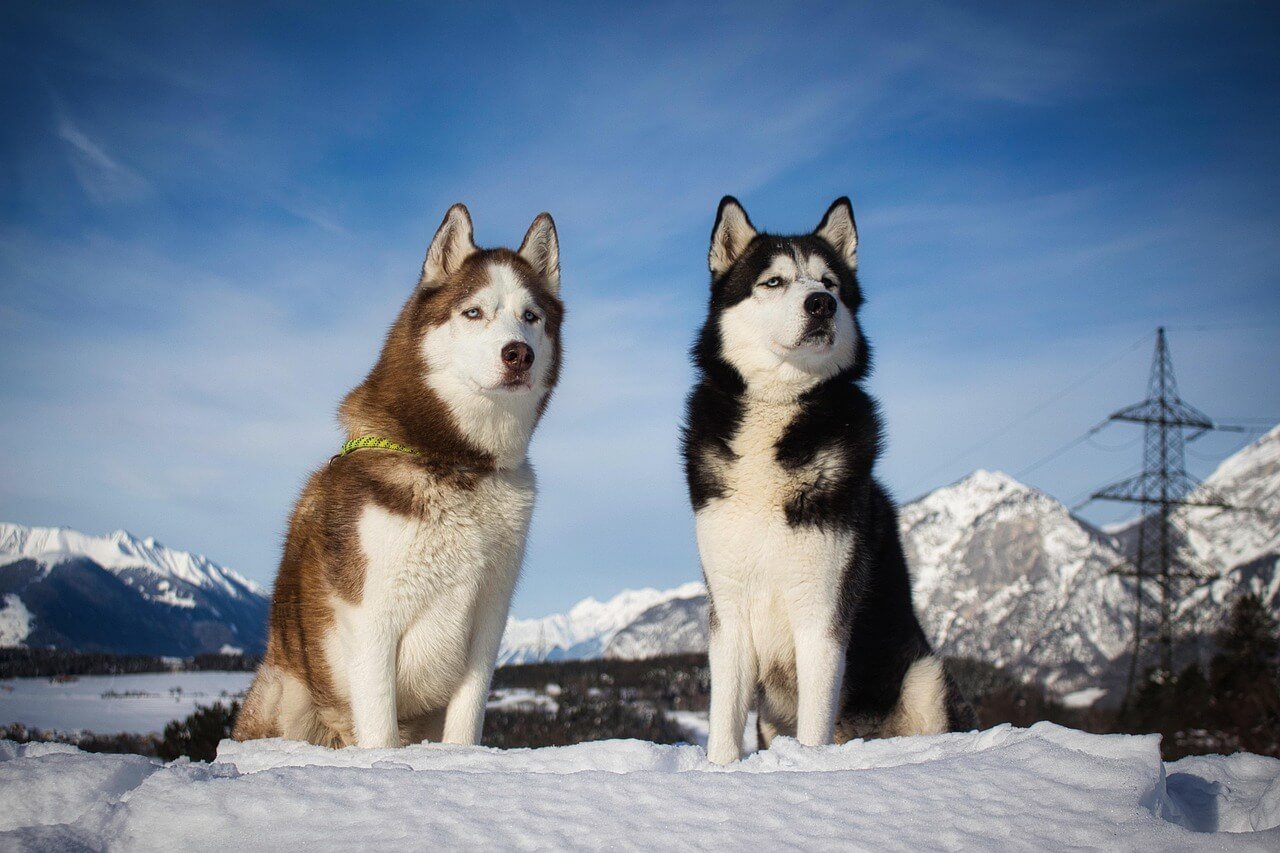Why Does My Dog Eat Snow? Unraveling the Mystery Behind This Quirky Behavior
Have you ever watched your furry friend enthusiastically munch on snow during winter walks and wondered, “Why does my dog eat snow?” It’s a question many pet owners ask when they notice their canine companions indulging in this peculiar habit. While it might seem odd or even concerning at first glance, there are several reasons why dogs engage in this behavior. From natural instincts to potential health signals, understanding why your dog eats snow can help you ensure their well-being while letting them enjoy the season safely. Let’s dive into the fascinating world of canine curiosity and uncover what drives this snowy snack-time ritual.
Common Reasons Why Dogs Eat Snow
Dogs eating snow is more common than you might think, and there are multiple explanations for this behavior. Below, we explore some of the most frequent reasons behind this quirky habit.
Natural Curiosity : Dogs are naturally curious creatures, and snow offers a unique texture and taste that piques their interest.
Hydration Needs : In cold weather, dogs may not drink as much water as they should. Eating snow could be their way of staying hydrated.
Boredom or Playfulness : For many dogs, playing in the snow is an exciting activity, and nibbling on it adds to the fun.
Instinctual Behavior : Wild ancestors of domesticated dogs often consumed snow to cool down or hydrate in freezing environments.
Taste Preference : Some dogs simply enjoy the refreshing taste of snow, especially if it has traces of dirt or other scents mixed in.
Understanding these reasons can help you determine whether your dog’s snow-eating habit is harmless or if it warrants closer attention. Remember, every dog is different, so observing their overall behavior will provide valuable insights.
Potential Health Implications of Eating Snow
While eating small amounts of clean snow is generally safe for most dogs, there are certain health considerations to keep in mind. Here’s what you need to know about how this behavior might affect your pup’s well-being.
Risk of Ingesting Harmful Substances : Snow in urban areas can contain pollutants like salt, antifreeze, or chemicals used for de-icing roads.
Digestive Upset : Consuming large quantities of snow can lead to stomach discomfort or even vomiting due to the sudden drop in body temperature.
Hidden Medical Conditions : Excessive snow consumption could indicate underlying issues such as nutritional deficiencies or gastrointestinal problems.
Teeth Sensitivity : Chomping on icy snow can cause sensitivity or damage to your dog’s teeth over time.
Cold-Related Illnesses : Prolonged exposure to cold surfaces while eating snow increases the risk of hypothermia or frostbite, especially for short-haired breeds.
By being aware of these risks, you can take steps to minimize any potential harm while still allowing your dog to enjoy the wonders of winter.
Check this guide 👉Why Does My Dog Eat Everything? Best 7 Behavior Tips!
Check this guide 👉Why Does My Dog Eat Rocks? Best 7 Expert Tips!
Check this guide 👉Why Does My Dog Eat Sticks? Best 7 Behavior Tips!

Reasons Dogs Eat Snow | Tips to Keep Them Safe |
|---|---|
Natural curiosity | Provide plenty of toys to redirect their focus |
Hydration needs | Ensure fresh water is always accessible |
Boredom or playfulness | Engage them with interactive games |
Instinctual behavior | Offer alternative cooling methods indoors |
Taste preference | Monitor outdoor activities closely |
How to Encourage Healthy Winter Habits
If you’re concerned about your dog’s snow-eating tendencies, here are some strategies to encourage safer and healthier behaviors during the colder months.
Limit Outdoor Time in Icy Conditions : Reduce the amount of time your dog spends outside when snow contains harmful substances.
Provide Mental Stimulation Indoors : Use puzzle feeders or training sessions to keep your dog mentally engaged and less inclined to seek entertainment outdoors.
Offer Fresh Water Regularly : Make sure your dog has constant access to clean drinking water to reduce the urge to consume snow.
Use Pet-Safe De-Icers : Opt for non-toxic products around your home to protect your dog from accidental ingestion of harmful chemicals.
Supervise Playtime Outside : Keep a close eye on your dog during walks or play sessions to prevent excessive snow consumption.
Implementing these practices can go a long way in ensuring your dog remains happy and healthy throughout the winter season.
Signs That Your Dog’s Snow-Eating Might Be a Problem
While occasional snow-eating is usually harmless, certain signs may indicate that this behavior is linked to a deeper issue. Watch out for the following red flags.
Excessive Consumption : If your dog eats large amounts of snow frequently, it could signal a medical condition requiring veterinary attention.
Behavioral Changes : Noticeable shifts in energy levels, appetite, or mood alongside snow-eating habits should raise concerns.
Vomiting or Diarrhea : These symptoms after snow consumption suggest digestive distress or toxin exposure.
Lethargy or Weakness : A lack of energy combined with snow-eating might point to dehydration or other health problems.
Obsessive Behavior : Constant fixation on snow despite distractions could indicate anxiety or compulsive tendencies.
If you observe any of these warning signs, consult your veterinarian promptly to rule out serious health issues.
Fun Ways to Redirect Your Dog’s Attention from Snow
If you’re looking to redirect your dog’s focus away from snow-eating, there are plenty of engaging activities that can keep them entertained and satisfied. These alternatives not only provide mental stimulation but also help curb unwanted behaviors.
Interactive Toys : Use toys that dispense treats or require problem-solving to keep your dog occupied.
Tug-of-War Games : This classic game strengthens your bond while giving your dog a physical and mental outlet.
Scent Work Activities : Hide treats or toys around the yard or house to encourage natural sniffing instincts.
Agility Training : Set up a mini obstacle course to challenge your dog physically and mentally.
Fetch with Safe Objects : Play fetch using durable balls or frisbees designed for cold weather conditions.
By incorporating these activities into your routine, you can help your dog channel their energy into healthier and more productive pursuits.
Winter Care Tips to Protect Your Dog’s Health
Winter brings unique challenges for pet owners, and taking proactive steps to care for your dog can prevent potential issues related to snow-eating or exposure to cold environments. Here are some essential tips to ensure your dog stays happy and healthy during the colder months.
Invest in a Quality Winter Coat : For short-haired breeds, a cozy jacket can provide extra warmth during outdoor adventures.
Check Paws After Walks : Inspect your dog’s paws for cracks, ice balls, or chemical residues after time spent outside.
Limit Time in Extreme Cold : Avoid prolonged exposure to freezing temperatures to reduce the risk of hypothermia or frostbite.
Keep Nails Trimmed : Longer nails can make walking on icy surfaces uncomfortable or hazardous for your dog.
Feed a Balanced Diet : Proper nutrition supports your dog’s immune system and overall well-being during winter.
These simple yet effective measures can go a long way in safeguarding your dog’s health and ensuring they enjoy the season safely.
Signs Your Dog is Having Fun vs. Unhealthy Snow-Eating
It’s important to differentiate between a dog simply enjoying the snow and one engaging in potentially harmful behavior. Observing your dog’s body language and habits can help you determine whether their snow-eating is playful or problematic.
Playful Behavior : Tail wagging, jumping, and running indicate your dog is having fun and not overly fixated on eating snow.
Short Bursts of Interest : Brief moments of nibbling followed by other activities suggest curiosity rather than compulsion.
Relaxed Demeanor : A calm and content disposition shows your dog feels safe and isn’t using snow as a coping mechanism.
Excessive Focus on Snow : Constantly seeking out and consuming snow may signal boredom, anxiety, or an underlying issue.
Changes in Energy Levels : Lethargy or restlessness after snow-eating could indicate discomfort or illness.
Understanding these signs will empower you to respond appropriately and ensure your dog’s snow-eating remains a joyful part of their winter experience.
Frequently Asked Questions About Dogs Eating Snow
Is it safe for my dog to eat snow?
Yes, in moderation and only if the snow is clean and free of harmful substances. However, excessive snow consumption can pose health risks.
Should I stop my dog from eating snow entirely?
Not necessarily. Occasional nibbling is fine, but monitor their intake and ensure they don’t ingest contaminated snow.
Can eating snow indicate a medical problem?
In rare cases, yes. Persistent or obsessive snow-eating may be a sign of nutritional deficiencies or other underlying conditions.
How can I tell if the snow is safe for my dog?
Avoid snow near roads, parking lots, or areas treated with de-icing chemicals. Stick to untouched patches in safe environments.
What should I do if my dog vomits after eating snow?
Contact your vet immediately, especially if vomiting persists or is accompanied by other symptoms like lethargy or diarrhea.
Final Thoughts: Embracing Winter Fun Safely
As we’ve explored, the question “Why does my dog eat snow?” doesn’t have a one-size-fits-all answer. Whether driven by curiosity, instinct, or simple enjoyment, this behavior is typically harmless when managed responsibly. By understanding the motivations behind it and taking proactive measures to ensure safety, you can let your dog embrace the joys of winter without compromising their health. After all, watching your pup frolic in the snow is one of life’s greatest pleasures—just make sure they’re doing so in a way that keeps tails wagging and spirits high!
Pemphigus Erythematosus in Cats: Best 7 Expert Tips! – Learn to recognize symptoms, manage flare-ups, and improve your cat’s quality of life.
Pemphigus Erythematosus in Dogs: Best 7 Expert Tips! – Discover causes, symptoms, and treatment options to manage this autoimmune skin condition effectively.
Cat Tympanic Membrane: Best 7 Expert Tips! – Learn how to protect your cat’s eardrum, spot issues early, and ensure lifelong auditory health.
Dog Tympanic Membrane: Best 7 Expert Tips! – Learn how to protect your dog’s eardrum, spot issues early, and ensure lifelong ear health with expert advice.





